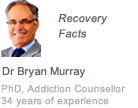Genetics and Drug Addiction
Genetics and drug addiction have been the subject of numerous research studies and projects trying to discover the facts about any possible link between the two. So far the indications are that the possibility of an individual developing drug addiction is affected to a point by genetics and other inherited factors. That is not to say that everyone who abuses drugs does so only because of the genetic history, nor that genetics are the sole cause of drug addiction.
The genetic mechanism underlying some drug addiction
Drug addiction development is based on chemicals such as dopamine that are produced in the brain. Dopamine receptors are the pleasure sensors in the brain, and produce dopamine to receive and enjoy that pleasure. Drugs can increase the amount of dopamine the brains produces, and that increases the level of pleasure received. The number of these pleasure sensors and receptors is determined by our genetic heritage, so clearly there is a link between our ability to produce dopamine and our genetic heritage.
Those born with fewer numbers of pleasure receptors will be able to produce less dopamine, so they will feel less pleasure. Drugs force the brain to produce more dopamine, (some drugs have artificial or chemically synthesized dopamine in their ingredients), as the levels of dopamine drop following metabolism of an ingested drug, the need to make more is higher for those with a reduced capacity in the first place.
So those born with a genetically reduced capacity to produce adequate dopamine are more likely to become addicted to drugs that elevate dopamine levels in the brain.
There is another inherited gene that governs the production of an enzyme that breaks down dopamine. This gene has low and high activity variations. If a person has the active gene, the dopamine-breaking enzyme will be produced in large amounts, and it will be harder for the individual to naturally experience common pleasures. Treatment to lower the activity of the enzyme-producing gene is available and can be used as part of treatment for drug addiction.
Much remains unknown – research continues
The connection and links between genetics and drug addiction is not complete and there is much still not understood. So far identification of the gene or genes that are particularly responsible for a propensity to drug abuse and addiction has eluded scientists. Until the gene or genes are identified it is not possible to understand properly and therefore treat to avoid drug abuse or addiction effectively.
At the moment there are no practical applications devised from the limited scientific results research has thrown up: real addicts with real problems cannot yet benefit from the ongoing research or discoveries. Effective medications and procedures for preventing and treating drug addiction on the genetic level are still to be found, tested and approved.
Inclination to drug addiction
Blaming drug abuse and addiction solely on genetics is wrong. It is the same as saying that a good harvest only needs water, when climate, soil type, soil nutrients and the strain of plant being grown are all of equal importance.
Drug abuse and addiction can be seen in the same way. Even if a person is perhaps genetically inclined towards drug abuse other factors can alter the path the individual takes:
- Children of addicts are more likely to follow the steps of their parents, because since early childhood they see and learn the pattern: using drugs is not a problem
- Dysfunctional families make dysfunctional adults as what is normal in a dysfunctional family is likely to form the pattern on which children will form their adult lives
- Abuse and trauma can push people into addiction; children do not forget abuse and find it hard to deal with trauma. Drug abuse and addiction can give them relief from the unhappiness of their everyday lives
- Poverty creates tensions and stress and a level of despair, again a retreat into the oblivion of drug abuse can be an escape even if only for a short while
- Ignorance is another factor; children need to learn about the dangers and risks of drug abuse so that they can make sensible choices and avoid them
As research continues into the human gene greater discoveries may lead to effective treatment for people who have a genetic predisposition to drug addiction. What remains of paramount importance is to take responsibility, educate and inform children, nurture them and prepare them well for adulthood.
If someone you know or care about falls into drug addiction, whatever the reason, talk to a professional who can give advice about the best course of action. Drug addiction can be treated. Detox, rehab and therapy can take an addict out of despair and into successful, sustained recovery. Do not wait for science to give the miracle cure. Make the call and get the help needed, it really is that simple.












